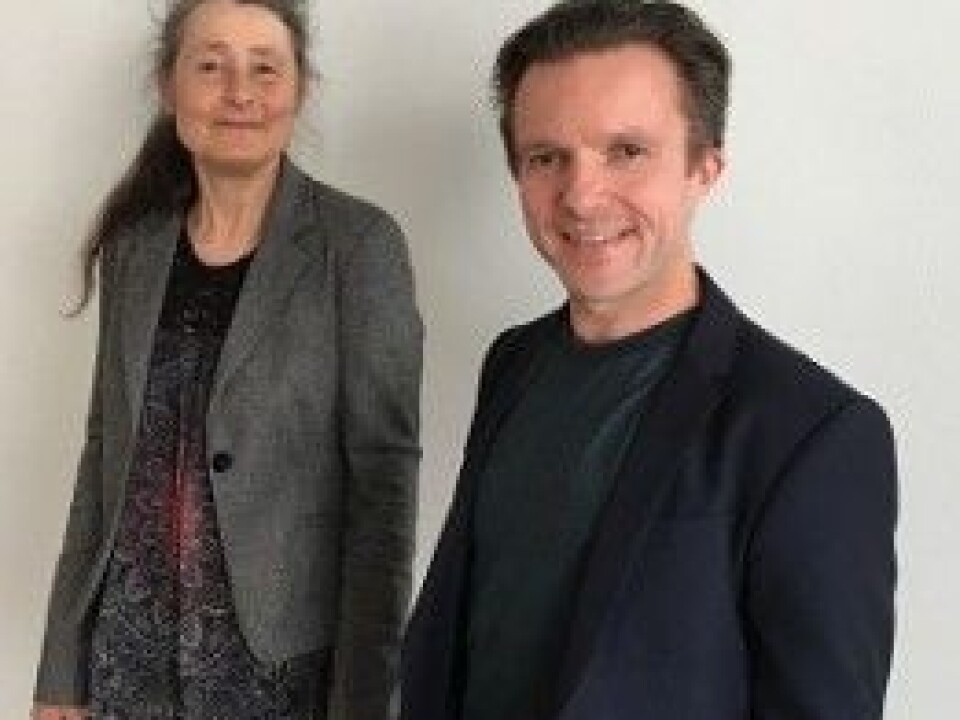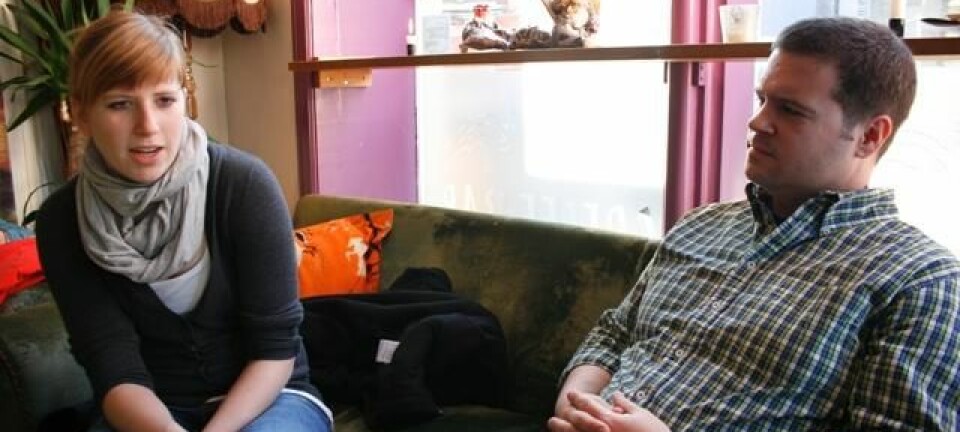
Teaching students to go easier on themselves
A two-week long course on self-compassion made university students less depressed and improved their mental health.
Maybe they’re just too hard on themselves. Or maybe it’s a lack of self-compassion that is eating away at the so-called Performance Generation.
A new study by researchers at the University of Bergen (UiB) shows that students there and at the Norwegian School of Economics have benefited from a course that teaches them to go easier on themselves.
Psychologists describe self-compassion as treating yourself with kindness in situations where you are struggling, as opposed to condemning yourself. If you have little self-compassion, it may mean that you are critical of yourself and beat yourself up if it goes badly at work, or if you are dissatisfied with your body, or if you do badly on your exams or are awkward in social relationships.
Per Einar Binder, a professor at the Department of Clinical Psychology at UiB, says it’s important to ask at times like these: “In difficult situations, do you treat yourself as well as you would treat a friend?”

Binder has previously studied the use of mindfulness meditation in the treatment of anxiety and depression, and how learning to end negative rumination can improve your mental health. He has also written the book "Ikke være så slem mot deg selv” (Don’t be so mean to yourself) which addresses the issue of self-esteem.
A wake-up call
“One of the students said that the course was a wake-up call for her. Like many other participants, she became aware that she was treating herself badly,” Binder said.
Binder and his colleagues, including Ingrid Dundas, an associate professor in the same department at UiB as Binder, wanted first and foremost to determine if self-compassion training could help students think fewer negative thoughts about themselves and strengthen a feeling of having control over their own lives.
In addition, they wanted to see if the students actually became more self-compassionate, and if the course could help with anxiety and depression.

Ninety-seven students completed the entire course. They applied for the course themselves after they discovered information about it on the university web pages for students.
The researchers used a group of students who had not taken the course, but who were on the waiting list, as a basis for comparison of the results.
The average age among participants was 25 years, and 85 per cent were women. Participants responded to questionnaires and described the most important thing they learned from the course. The researchers also interviewed some of them.
The course consisted of three get-togethers, where the students learned about self-compassion, did exercises and exchanged experiences with each other. The study that Binder and his colleagues published showed that both after two weeks and after six months, the students showed improvements in several areas.
Ruthless internal critic
Binder taught the students to examine and discuss the following question: How can we face painful emotions and what is destructive self-criticism?
Low self-compassion is characterized as being too strict towards yourself, which is rarely a good idea, Binder says.
"Then your inner critic can be relentless," he says.
This relentless internal critic often has two specialties that affect us psychologically, Binder says.
“It can make you feel shame when the voice inside you starts to be derogatory towards yourself,” he said.
“The second aspect makes you feel angst. It may make you think something really wrong can happen if you do, or do not do, something. Students may feel this during exams. They may think that a bad grade can lead to more bad grades and that everything is going to go to the dogs,” he said.
Several studies indicate that students have more minor mental health problems, especially depression and anxiety, than the population overall, according to Binder. He believes there is a need for easily accessible and effective psychological help.
Performance anxiety can exaggerate your own inner voice
In addition to being made aware of how they treated themselves, the students received training in mindfulness meditation exercises, which they were told to do at home. The students were told to create friendly messages to tell themselves.
“We need to hear different things when we have negative thoughts about ourselves,” Binder said.
“Some people need to say things to themselves like: ‘You're all right!’, or: ‘You're doing the best you can!’ But this varies from person to person,” he said.
After the two-week course ended, the students improved in all the areas the researchers asked them about, according to the study. After six months the students still showed beneficial effects, and had fewer signs of anxiety and depression and more self-compassion.
The students also found that they could more easily steer their lives in the direction they wanted it to go — and had less negative self-control, according to Binder.
One of the goals of the course was to get the students to stop and reflect on what they really wanted. Was it a high prestige study programme, or a training programme that they wanted to do every day? Or was it really something else?
“When we are hard on ourselves, we may not end up doing what we really think is important in life. Perhaps we don’t study the subjects that are actually best suited to us, for example. Sometimes we don’t do enough of the things that are most enriching for us,” he said.
-----------------------------------------
Read the Norwegian version of this article at forskning.no



































